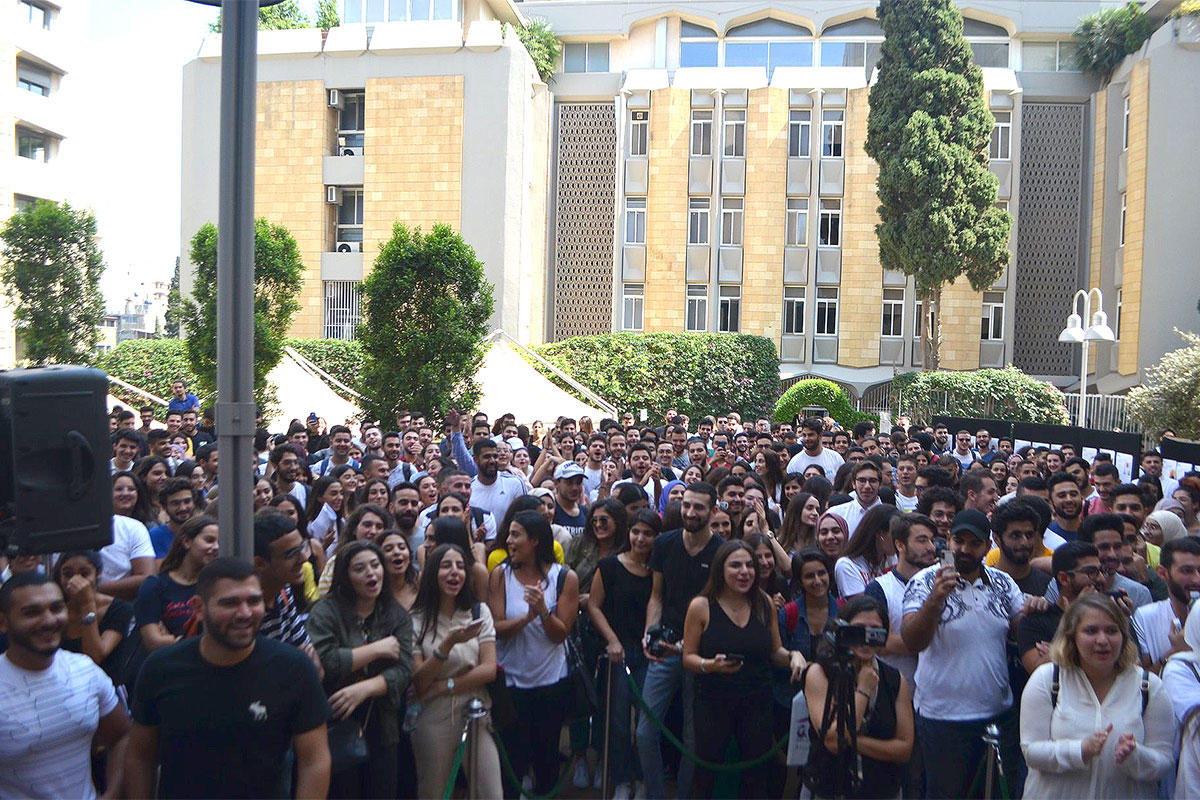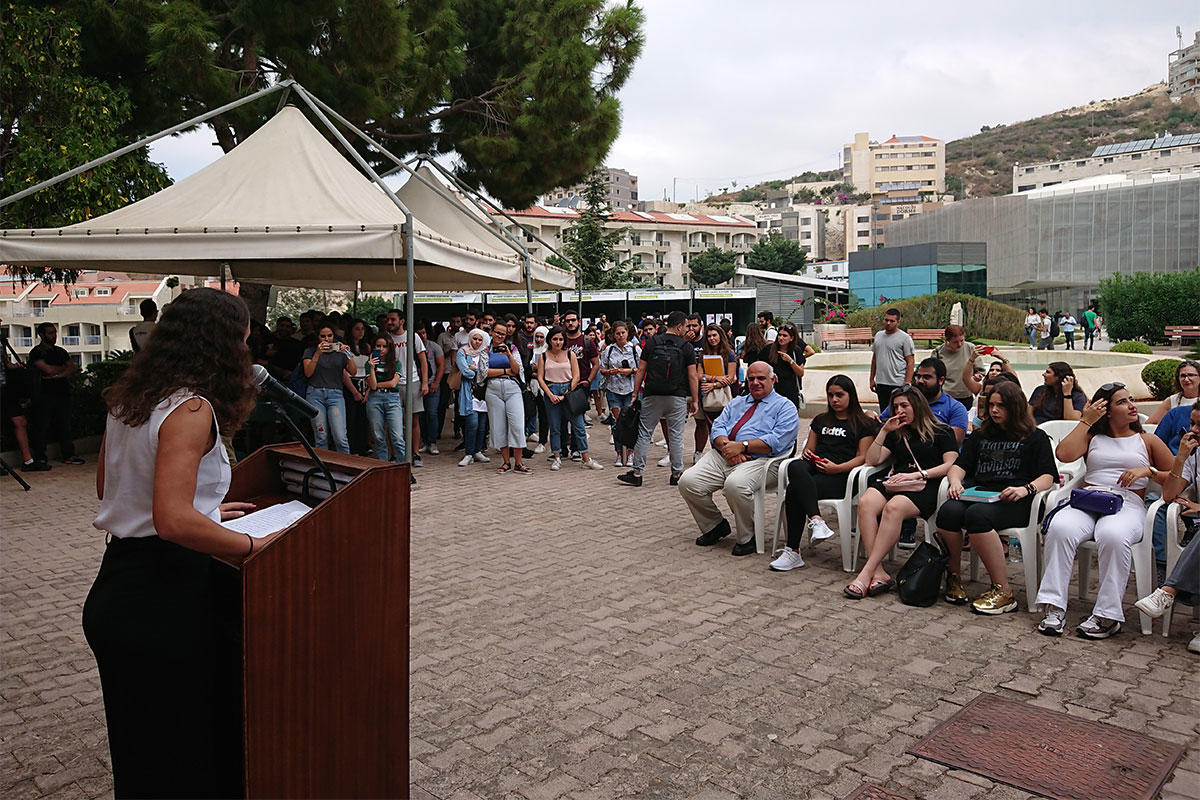Student Council Elections 2019
Close to 70 percent of students voted to elect their new representatives.
Of 5,994 undergraduate students who are eligible to vote, 4,160 cast their votes on Friday, October 4 to elect their representatives to the LAU Student Council.
The elections reflect the core of LAU’s shared governance model in which students have a seat at the table with the university’s leadership to influence major decisions. Elected student representatives serve on both the university student council, which tackles institution-wide topics such as curricula, as well as the campus student council, which takes on issues that are specific to each campus.
The election results were first announced to all candidates in a closed meeting, where both campuses were connected via video conference. Present at the meeting were LAU President Joseph G. Jabbra, Vice President of Student Development and Enrollment Management (SDEM) Elise Salem, Vice President for Administration Roy Majdalani, the deans of students, Assistant Vice President for Information Technology Camille Abou-Nasr, IT and SDEM staff, as well as representatives from the Lebanese Association for Democratic Elections (LADE).
Dr. Jabbra began by congratulating the students for exercising their democratic rights, adding that “all students are members of our precious LAU family, and we are proud of you.”
The new student council consisting of 30 student representatives was announced through official emails and published on the LAU website, shortly after online voting stopped at 4 p.m.
Dr. Salem echoed the president’s thoughts, highlighting how the electoral process is a “loving expression of governance and of [student] rights.” She further noted how the voting system is “the most sophisticated, air-tight, secure, and transparent system in Lebanon today,” as attendees prepared to see the election results in real time.
Countering false claims on security breaches, Abou-Nasr noted that “this year we added the ‘Dual Factor Authentication’ to fortify the voting system,” a feature commonly used by corporates with high IT security such as the banking sector.
“A student cannot cast his or her vote without entering a one-time passcode they receive on their phone, via SMS,” he explained, adding that even if a student’s password is somehow known to another, they would still need that person’s phone to be able to vote on their behalf. Students also had the option of voting from secure computers that were made available in designated spaces on each campus. In fact, it was reported that only six students filed technical complaints across both campuses, which were resolved on the spot.
Abou-Nasr further gave an overview of steps that were taken ahead of the elections to ensure that the voting system is unbreachable and efficient. “We launched a campaign that obliged students to update their mobile numbers and tested the feature successfully for club elections two weeks ago.”
The voting database sits in a physically and virtually secure place, Abou-Nasr affirmed, noting that his department has implemented additional security measures and has been continuously monitoring for all forms of suspicious activity, similar to cases that they have successfully detected in previous years. “The voting process is completely anonymous and there is no way that anyone – including us – can find out who voted or who they voted for,” he said.
Both Deans of Students, Dr. Raed Mohsen in Beirut and Dr. Makram Ouaiss in Byblos, confirmed that the voting opened at 6 a.m., which meant that students were able to vote from anywhere in the world – away from pressure – and go on to attend their classes just like any other regular day. Since 2016, online voting has helped curb any potential conflicts, reduced tensions and encouraged more students to participate, compared to years where voting happened in-person.
Members of the Student Council for 2018-19 reflected on their work during the past year. “While many of our proposals failed to be executed, many others succeeded, allowing us to reshape the students’ perception of their representatives,” Former President Abdullah Malaeb noted, sharing a piece of advice with the incoming council members: “I advise you to fail and give it another try.”
For Rawan El Mousharafieh, member of the council’s Curriculum Committee, the experience has been an eye-opener: “What unites us is stronger than what divides. Differences in perspectives, political affiliations, religious backgrounds and strongly held beliefs do not threaten this unity nor should they intimidate us into thinking we are too different from one another.”

